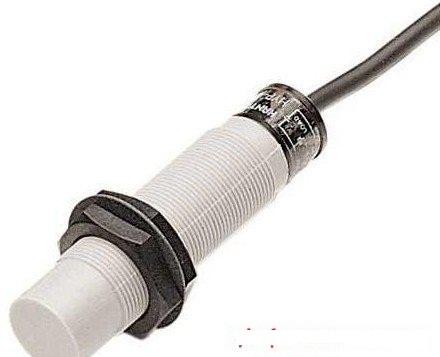Detailed understanding of capacitor switch knowledge
Time:2023-05-17
Views:1025
Capacitor switch is a highly intelligent level measurement product that uses advanced RF capacitor technology to measure the level of materials through several shifts of capacitance, and is a switch device with an alarm switch. There are single point, double point, three point, and four point options available.

The main characteristics of capacitive switches
Adopting data storage technology, parameters are not lost after power outage, and data can be saved for up to 10 years.
Using RF capacitance measurement and microcontroller technology, it can detect solid particles, powders, and liquids (including conductive and non-conductive media), especially strong corrosive media; The measurement temperature can reach 180 ℃, and the pressure resistance can reach 4MPa
It can overcome the influence of adhesive layer and material splashing on the measurement of the probe. In these situations, there will be no misoperation.
Simply press the setting button to complete the setting of the alarm point. The setting button also has anti vibration characteristics to avoid unnecessary modification of alarm points.
The upper and lower limit alarm modes can be flexibly set.
Using polytetrafluoroethylene to protect the probe electrode, suitable for high-temperature and high-pressure environments.

Main parameters of capacitive switches
Environmental temperature: -30~70 ℃;
Environmental humidity: ≤ 95% RH;
Protection level: IP65;
Power supply: 220V. AC ± 10% or 24V. DC ± 15%;
Relay contact capacity: 220V. AC/3A or 24V. DC/5A;
Relative dielectric constant: ε≥ 1.6;
Delay time: 0, 2, 4, 8, 1 6, 3 2 seconds;
Power consumption: ≤ 1W;
Explosion proof grade: Exd Ⅱ CT4
Electrical interface: M20 × 1.5;
Probe length: 350mm or specified by the user;
Process temperature: normal -20~80 ℃; High temperature -25~180 ℃;
Process pressure: -0.1~4.0MPa
The principle of capacitive switches
The capacitor switch adopts radio frequency capacitor technology to convert the level change inside the container into the capacitance change. The probe serves as one electrode of the capacitor, and the container wall (or auxiliary probe) serves as another electrode. The capacitance change is converted into a pulse frequency change through electronic plugins, and the microcontroller completes the setting of alarm points and the implementation of alarm actions. It overcomes the inconvenience caused by low alarm accuracy and complex calibration steps in traditional measurement methods such as charging and discharging, and confirms the alarm point through a set button, and stores this alarm point for a long time. If you need to change the alarm point, simply reset it.
Installation of capacitive switches
During the installation of capacitor switches, either top mounted (vertically installed from the top of the compartment) or side mounted (installed on the side of the compartment wall) should be adopted based on the different forms of probe electrodes and on-site conditions.
1. When installing on the top, it should be installed at a location that can avoid material impact during feeding, and the distance from the warehouse wall should be greater than 200mm. When installing on the side, it should be tilted downwards by 20-30 ° to avoid severe hanging of the probe.
2. When disassembling the level switch, do not use your hands to hold the housing and twist it. Instead, use a wrench to twist the process connection.
3. When there is no auxiliary probe, it should be ensured that the level switch shell has good contact with the metal container (<1 Ω).
Application of capacitive switches
Capacitor switches are widely used for level measurement and control of liquids, powders, and solids in industries such as petroleum, chemical, power, metallurgy, machinery, food, pharmaceuticals, and feed.
|
Disclaimer: This article is transferred from other platforms and does not represent the views and positions of this site. If there is any infringement or objection, please contact us to delete it. thank you! |











